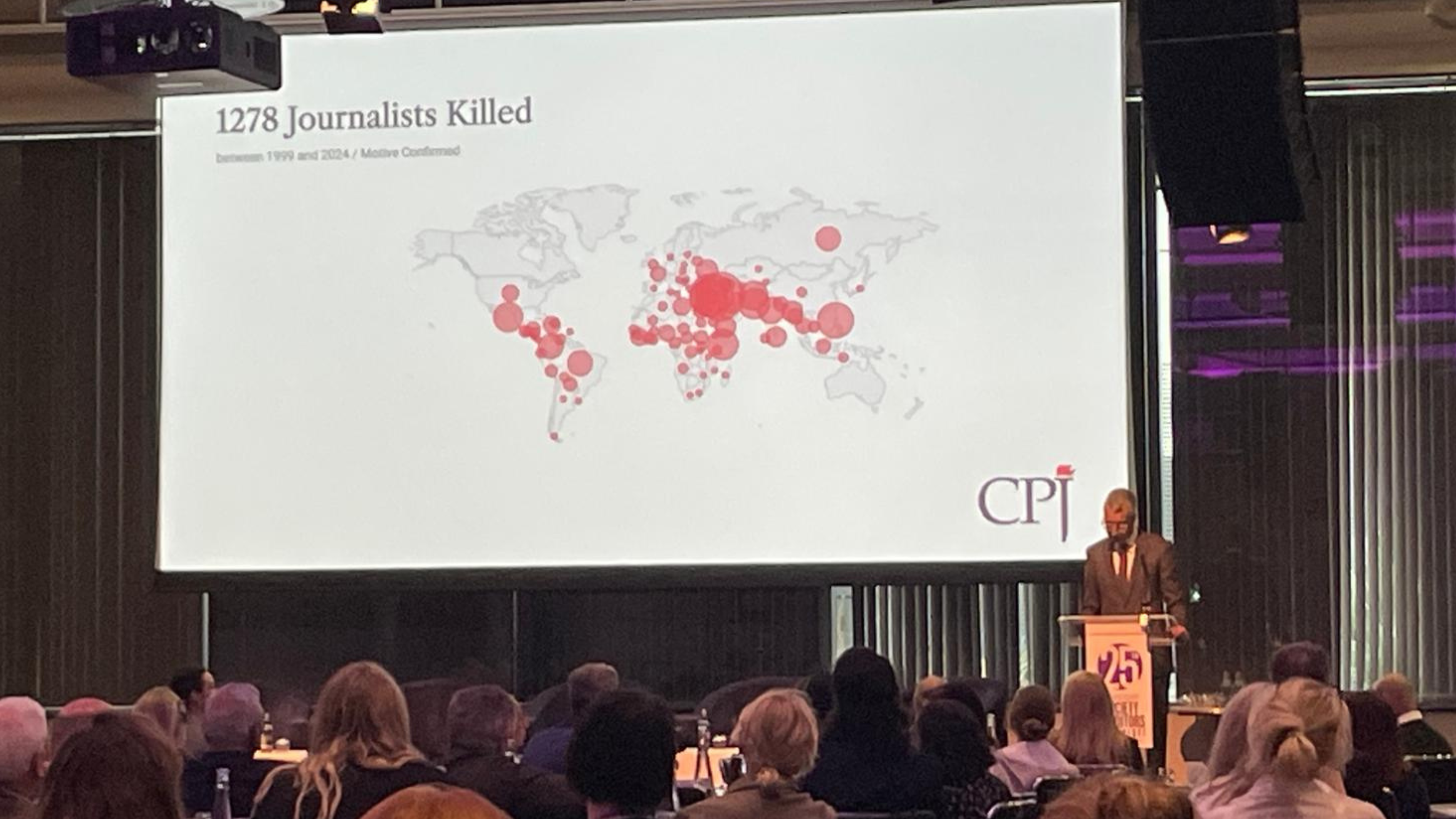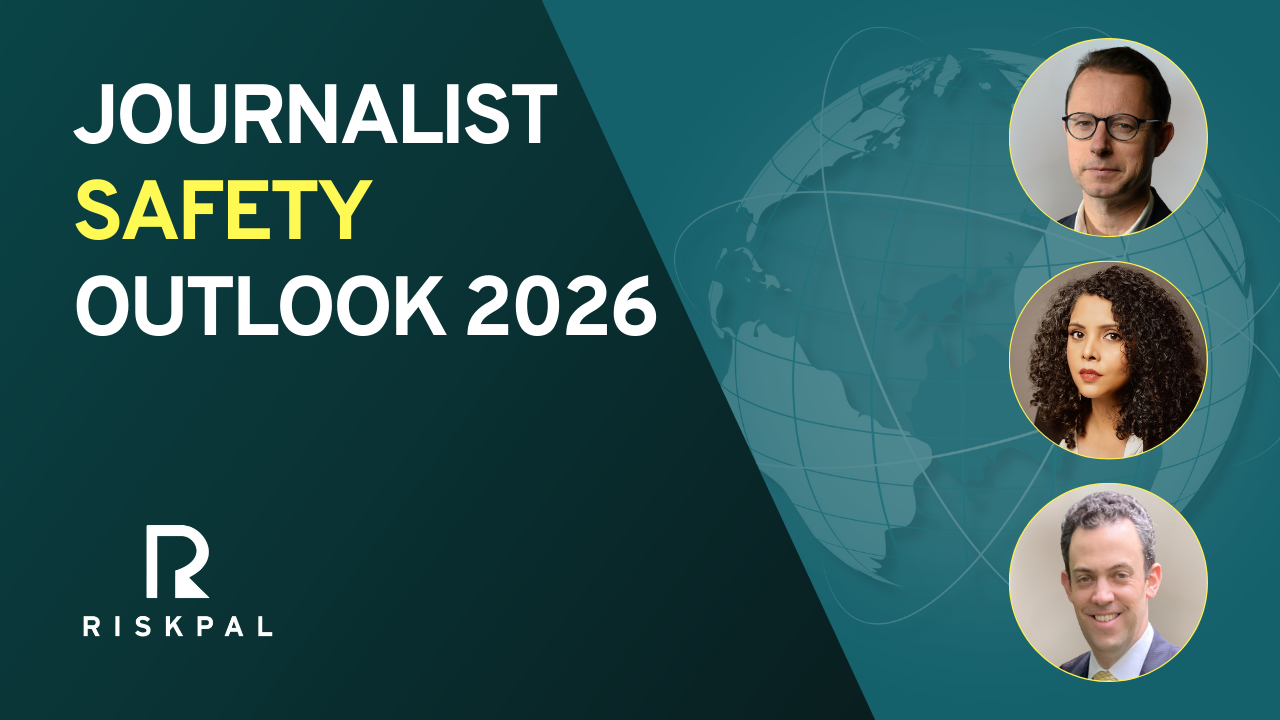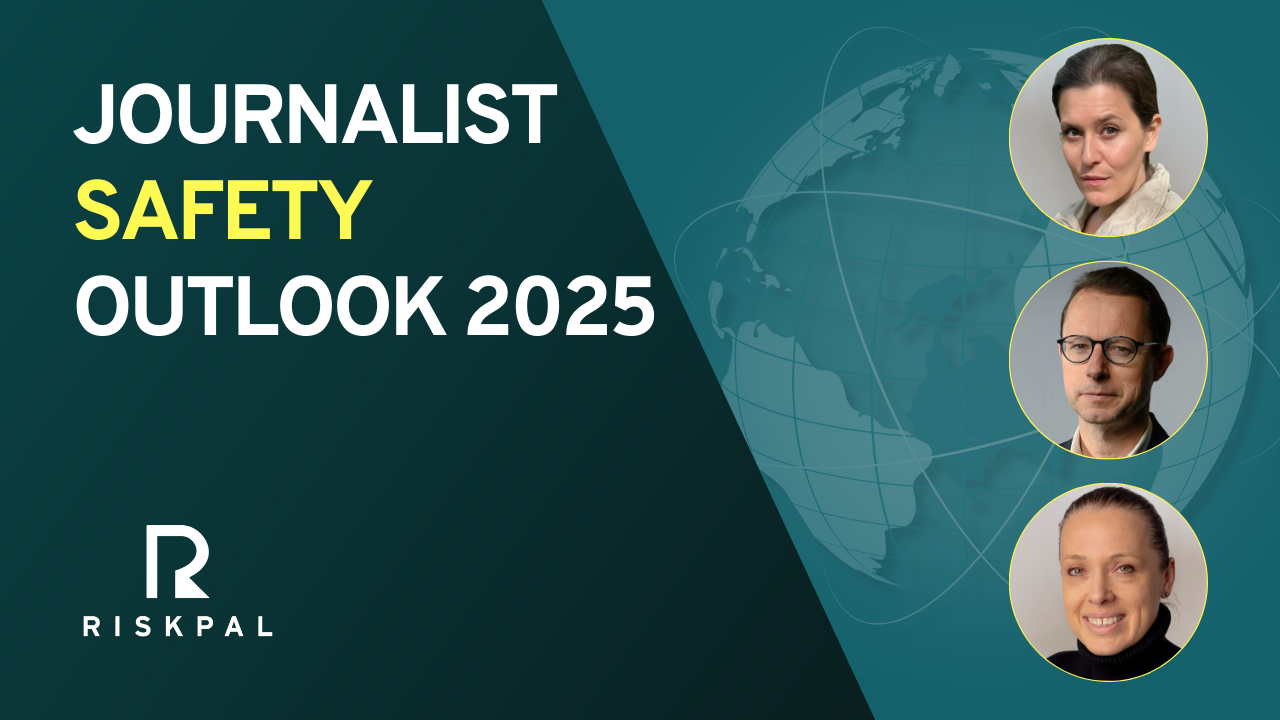World Press Freedom Day: Protecting Journalists’ Rights and Integrity
How can you make a difference on World Press Freedom Day?
RiskPal Founder, Colin Pereira attended the UK Society of Editors 25th Anniversary in London this week. Rather than a celebration, however, the opening address by Kamal Ahmed, Editor-in-Chief of The News Movement, focused on the terrible price journalists have paid in the last 12 months in the pursuit of their trade. In 2023, the Committee to Protect Journalists reported that 78 journalists lost their lives, and already in 2024, 21 have been killed.
Later that day, those at the conference were humbled to hear from the BBC’s Gaza correspondent Rushdi Abulouf. He described the acute challenges of going on air just after hearing that family friends had been killed, the pain of losing his home and the fear of seeing airstrikes hit buildings adjacent to where his family were sheltering.
World Press Freedom Day serves as a key reminder to governments and societies of the need to respect and support press freedom. But why does press freedom really matter?

Major Contributions of Investigative Journalism
A free press serves as a critical safeguard for democracy, justice and accountability. It raises public awareness about key issues and provides a voice to those who are often unheard. Some examples of the power and necessity of a free press include:
- Ensuring Accountability and Justice: In 2020, a consortium of investigative journalists known as the “International Consortium of Investigative Journalists” (ICIJ) released the now-famous “Panama Papers.” These leaked documents exposed a vast network of offshore tax havens used by the wealthy and powerful to shield their assets, sparking public outrage and investigations into financial corruption around the globe.
- Unearthing Social Injustice: The tireless work of journalists in documenting police brutality and racial injustice was a key part of The Black Lives Matter movement. Videos captured by citizen journalists and amplified by the media brought these issues to the forefront of public consciousness, leading to crucial conversations about systemic racism and calls for police reform.
- Safeguarding Human Rights: In war-torn regions like Ukraine and Gaza, journalists risk their lives every day to report on the devastating impact of conflict. Their work not only informs the world about the human cost of war but serves as a vital tool in holding perpetrators accountable for war crimes and human rights abuses.
- Raising Environmental Awareness: Journalists are on the front lines of exposing environmental degradation and the powerful forces that often lie behind it. However, their work comes at a steep price. They face harassment, intimidation, and even violence from those who seek to silence their reporting.
We work with such journalists every day to ensure that they can do their work safely. However, in the 21st century, press freedom faces growing and complex challenges. The rise of disinformation campaigns, the intimidation and murder of journalists, and increasing government restrictions all threaten media freedom.
How You Can Support Press Freedom and Accountability
In the face of this onslaught, it is easy to be overwhelmed. But you can make a difference:
- Be a discerning consumer of information: In today’s information age, be critical of the information we consume. Fact-check information before sharing it and interrogate the source. Support reputable news organisations that adhere to journalistic ethics.
- Speak out against censorship: When governments or other powerful entities try to silence the media, it’s important to raise your voice. Support advocacy groups, petitions and peaceful protests that defend press freedom.
- Subscribe to independent media: Many independent news organisations are struggling financially. Subscribing to these outlets and supporting investigative journalism helps ensure they can continue their essential work.



